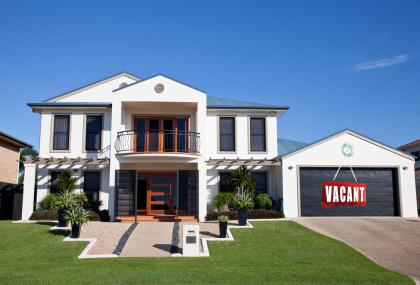How Long Can I Leave My House Vacant In Denver, CO
Discover the potential risks and responsibilities of leaving your Denver home vacant. Learn about property maintenance, insurance considerations, legal obligations, and strategies to protect your investment.

Understanding Denver’s Property Vacancy Laws and Regulations
For homeowners who are thinking about keeping their houses unoccupied, it is crucial to comprehend Denver’s property vacancy laws and restrictions. Certain laws and regulations that are intended to protect public safety and preserve community aesthetics apply to unoccupied properties in Denver.
In order to prevent damage from severe weather, homeowners need to be aware of the municipal regulations for protecting vacant homes, which include keeping utilities at a minimal level. City officials may also need to conduct routine inspections of vacant premises to make sure safety regulations are being followed.
Fines or even legal action may follow noncompliance with these rules. Because many insurers have special provisions pertaining to vacant properties, it’s also critical for homeowners to comprehend how leaving a property unoccupied may affect their insurance coverage.
Denver homeowners may efficiently manage their abandoned properties while avoiding fines and maintaining the welfare of the community by being aware of these laws. At We Buy Houses in Denver, we assist you through the home selling process, making sure your property stands out to buyers. We buy houses in all cities in Colorado, including Colorado Springs, Denver, Arvada, Fort Collins, Lakewood.
Key Considerations for Leaving Your Home Unoccupied in Denver
When preparing to leave your Denver house unoccupied, you must consider several important aspects. Your first concern should be making sure your vacant house is secure by investing in strong security systems, such as cameras and alarms, to safeguard your property and adhere to local laws.

Regular maintenance is also necessary to avoid problems like heating failures or plumbing leaks, which, if ignored, can develop into expensive repairs. When leaving a property unoccupied, it’s also critical to be aware of the ramifications of your homeowner’s insurance policy; certain policies could not pay for losses sustained during prolonged vacancy.
Be mindful of Denver’s particular unoccupied home rules, which can mandate that you register the property or keep it in a specified outside condition. Finally, to make sure everything goes without a hitch while you’re away, think about working with a property management company that specializes in watching over vacant houses.
Insurance Implications of a Vacant Home in Denver, Colorado
The coverage and policies of homeowners’ insurance can be greatly impacted when a house in Denver, Colorado, is left unoccupied. Because abandoned properties are more vulnerable to problems like burglary, vandalism, and hidden damage from weather-related incidents or plumbing problems, insurance companies frequently consider them to be higher risk.
If the property remains vacant for a long time, these hazards might not be covered by a typical homeowners’ insurance policy. Homeowners must inform their insurance company of the vacancy in order to negotiate possible policy modifications or endorsements that expressly handle vacant properties, especially in Denver where weather patterns can be erratic.
A vacancy permit or a specific vacant property insurance policy that offers sufficient protection during non-occupancy are two examples of these choices. If damage happens while the house is unoccupied and you don’t update your insurance coverage, your claims may be rejected.
To be sure they meet all requirements and keep the right coverage for their unoccupied Denver property, homeowners should carefully evaluate their policies and speak with their insurance agent.
Security Measures for Protecting Vacant Properties in Urban Areas
Implementing thorough security measures is essential when leaving your Denver house unoccupied in order to shield it from potential attacks that are typical of urban settings. Installing a strong security system that includes motion detectors and video cameras will warn you of any strange behavior and discourage burglars.

By enabling remote monitoring and management of your home’s security, smart home technologies like smart locks and remote-controlled lights provide an additional degree of security. Unauthorized entrance can be avoided by strengthening windows and doors with shatterproof glass and safe locks.
In order to maintain the appearance of the house and lessen indications of neglect that could draw in intruders, it is recommended to regularly inspect the property or hire a local property management firm to guarantee that any maintenance issues are swiftly addressed. Participating in neighborhood watch programs can also be advantageous because unoccupied property protection frequently depends heavily on community vigilance.
Managing Utilities and Maintenance for Unoccupied Homes in Denver
In order to avoid unforeseen problems and preserve property value, it is essential to manage utilities and maintenance for vacant properties in Denver. It’s crucial to modify heating and cooling systems before vacating a Denver house in order to safeguard against severe weather.
During Denver’s severe winters, frozen pipes can be avoided by setting the thermostat to an energy-efficient setting. Early detection of possible maintenance issues, such leaks or structural damage, can be facilitated by routinely planned inspections by qualified local experts.
Installing smart leak detectors or draining water pipes are two other ways to protect the home from water-related harm. In order to discourage possible burglars by creating the impression of occupancy, it’s also a good idea to keep electricity running for security systems and lighting timers.
It’s important to remember that regular yard care maintains curb appeal and conforms with municipal property maintenance regulations. Homeowners may guarantee that their vacant houses stay safe and well-maintained in Denver’s particular climate by carefully addressing these factors. We buy houses all across Denver Colorado, you can read our reviews, and also read about the process of how we buy houses.
The Impact of Long-term Vacancy on Property Value in Colorado
Long-term vacancy can have a big effect on a Denver home’s value, especially in the competitive Colorado real estate market. Unoccupied properties frequently lose value as a result of neglect and poor upkeep, which can result in problems like decay, vandalism, or pest infestations.

These dangers are made worse by Colorado’s severe winters and unpredictable weather patterns, which can result in structural damage like frozen pipes or roof leaks if not routinely inspected and maintained. Furthermore, abandoned houses could become the target of squatters or vandalism, which would further reduce their market value and desirability.
In Colorado’s competitive real estate market, where demand frequently exceeds supply, a neglected house does not draw in potential tenants or buyers, who typically favor immaculate properties that are ready for immediate occupancy. Long-term vacancy may thereby raise homeowners’ holding costs through higher insurance premiums and security costs, while also decreasing the total return on investment upon ultimate sale of the property.
Legal Requirements for Vacant Residences: a Denver Perspective
Homeowners in Denver must be aware of the legal responsibilities when leaving their residence unoccupied. To prevent unoccupied properties from becoming burdens or eyesores in the community, the city enforces adherence to certain rules.
In order to track and manage vacant dwellings, homeowners are required to register their vacant properties with the city’s Vacant Property Registration program. Maintaining sufficient insurance coverage is also necessary to guard against any liabilities or damages brought on by natural disasters or vandalism.
In order to prevent unwanted entrance, Denver’s municipal law mandates that property owners properly protect their buildings, making sure that all doors and windows are secured and undamaged. Local authorities may conduct routine inspections to ensure that property upkeep requirements, such keeping yards neat and debris-free, are being followed.
Homeowners should also be mindful of any homeowners’ association regulations that can place extra requirements on unoccupied homes. Property owners must be up to date on the latest rules pertaining to vacant properties in Denver since noncompliance with these legal requirements may result in fines or penalties. You can learn more about the paperwork you need to sell your house in Denver, Colorado.
Seasonal Considerations for Leaving a House Empty in Colorado’s Climate
Understanding the seasonal effects that Colorado’s distinct climate might have on an empty house is crucial when thinking about leaving your Denver home unoccupied. The state’s extremes in temperature—cold winters and hot summers—can have an effect on an empty property’s safety and structural soundness.
If pipes are not adequately insulated or emptied, freezing temperatures during the winter months may cause them to rupture, potentially causing water damage. To avoid such problems, it is essential to keep the house heated sufficiently even when no one is home.
In contrast, the warmth of summer calls for careful consideration of humidity regulation and air movement to prevent the formation of mold and the degradation of wooden structures. Furthermore, Colorado’s high elevation increases UV exposure, which over time can erode external paint and harm roofs if they are not maintained.

Along with making sure security systems are working to prevent break-ins, homeowners should also think about the possibility that pests would seek shelter in an unattended home throughout different seasons. You may better safeguard your Denver property while it is unoccupied by being aware of these seasonal conditions.
How to Get Your Denver House Ready for a Prolonged Vacation
To guarantee the safety and upkeep of your Denver home while you are away, there are a few essential steps to take before you leave. To discourage possible intruders, begin by installing high-quality locks on all entrance points, such as windows and doors.
For added piece of mind, think about setting up smart cameras or a security system that enables remote monitoring. Turn off the main water valve and drain pipes to avoid water damage, or have a reliable neighbor check for leaks on a regular basis.
Given Denver’s frigid winters, setting the thermostat to a setting that keeps pipes from freezing is crucial. To prevent giving the impression that the residence is empty, schedule mail collection or temporarily stop delivery services.
Employing a yard care service can also help your house look occupied, which is especially crucial in places that get a lot of snow and may need snow removal. Unplugging electronics that are not absolutely necessary also lowers energy usage and lowers the risk of a fire while you are away.
Tips for Neighbor Relations When Your House Is Vacant in Denver
It’s crucial to keep in close contact with your neighbors because leaving your Denver house unoccupied can affect their relationship with you. Informing your neighbors of your plans and offering emergency contact information might reduce concerns.
Think about asking a reliable neighbor to watch your property and report any odd activities. Having someone pick up the mail or deliveries is a good idea since if they pile up, it can be a sign that the house is unoccupied.
By checking in with your neighbors regularly, you may reassure them that you’re paying attention, even if you’re far away. Maintaining your home’s exterior, such as clearing snow or cutting the lawn, reduces the likelihood of problems and demonstrates consideration for the area’s aesthetics.
To keep your property looking occupied and to help the neighborhood, try to utilize local services for maintenance jobs. As you appropriately manage your unoccupied Denver house, keeping in touch with your neighbors guarantees that they feel informed and involved.
How Long Can a House Be Vacant?
When determining how long a home in Denver can stay unoccupied, it’s important to comprehend the many ramifications of prolonged vacancy periods. Insurance policies typically contain specific provisions addressing the amount of time a home can be uninhabited before coverage is impacted.

In order to provide sufficient protection against hazards like theft, vandalism, and weather-related damage, you might need to purchase an empty home insurance policy after the 30- or 60-day period that most regular homeowner’s insurance plans cover residences. Long-term vacancy can also result in maintenance concerns, such as bug infestations or plumbing issues, which may go undetected without routine inspections.
If heating systems in an empty house are not adequately monitored, the winter months in Denver present serious issues. Furthermore, letting your property sit empty for an extended period of time may draw unwelcome attention and possible squatters.
Can I Leave My House Empty for a Month?
Homeowners should carefully examine the serious consequences of leaving their Denver house unoccupied for a month. Even while leaving a house unattended for a long time could seem innocuous, it’s crucial to be aware of the possible threats and take precautions.
Because there are no tenants, a deserted house is more susceptible to security risks like vandalism or break-ins. Furthermore, without routine inspection, maintenance problems like electrical malfunctions or plumbing leaks can worsen rapidly.
Certain provisions in home insurance plans may also apply to vacant houses, which could have an impact on coverage if the house is left unoccupied for an extended period of time. In order to reduce these risks, Denver homeowners should discuss their intentions with their insurance company and look into alternatives such as employing a property manager or asking a reliable neighbor to visit the property on a regular basis.
Putting smart home technology into practice can also help with remote house monitoring, giving you peace of mind while you’re away. You can make sure that leaving your home unoccupied for a month won’t cause any unforeseen issues when you return by following these procedures.
Resources To Help You Sell A House In Denver, CO
Give Us A Call Now At 720-738-6020
If you need to Sell your house fast in Colorado, we promise to make you a fair, no-obligation, no-hassle offer. Take it or leave it. You’ve got nothing to lose.
Do you still have questions? Calling us could be the best decision you make all week!
